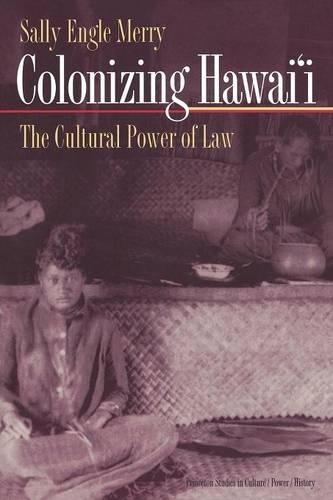
Colonizing Hawai'i: The Cultural Power of Law
(Paperback)
Publishing Details
Colonizing Hawai'i: The Cultural Power of Law
By (Author) Sally Engle Merry
Princeton University Press
Princeton University Press
21st March 2000
United States
Classifications
Professional and Scholarly
Non Fiction
National liberation and independence
Laws of specific jurisdictions and specific areas of law
Social groups, communities and identities
Cultural studies
349.969
Winner of James Willard Hurst Prize of the Law and Society Association 2002
Physical Properties
Paperback
432
Width 152mm, Height 235mm
567g
Description
How does law transform family, sexuality, and community in the fractured social world characteristic of the colonizing process The law was a cornerstone of the so-called civilizing process of nineteenth-century colonialism. It was simultaneously a means of transformation and a marker of the seductive idea of civilization. Sally Engle Merry reveals how, in Hawai'i, indigenous Hawaiian law was displaced by a transplanted Anglo-American law as global movements of capitalism, Christianity, and imperialism swept across the islands. The new law brought novel systems of courts, prisons, and conceptions of discipline and dramatically changed the marriage patterns, work lives, and sexual conduct of the indigenous people of Hawai'i.
Reviews
Winner of the 2002 Williard Hurst Prize in Legal History
Author Bio
Sally Engle Merry is Class of 1949 Professor of Ethics in the Anthropology Department at Wellesley College. Her books include Urban Danger: Life in a Neighborhood of Strangers, Getting Justice and Getting Even: Legal Consciousness among Working-Class Americans, and The Possibility of Popular Justice: A Case Study of American Community Mediation, coedited with Neal Milner. She is currently president of the Association for Political and Legal Anthropology.
